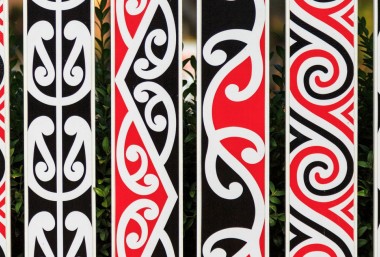Reflecting on Maori Language Week this year reminded me it has been over one year since the release of the WAI 262 report; and yet we continue to wait for our government’s response to the recommendations in that report.
The motto for this week is arohatia te reo - cherish the language. I can't help but think that until the government fully considers the recommendations in the WAI 262 report, then we are constrained in our ability to fully cherish the language, because Maori are limited in their ability to protect and stop any offensive or commercial use of Maori intellectual property, including the language.
The Ka Mate haka trade mark bid
The WAI 262 report commented on how our intellectual property framework is incapable of protecting traditional knowledge or cultural intellectual property rights. This problem has recently been demonstrated in the Ka Mate decision, where Ngati Toa was unsuccessful in defending an opposition against their applications to register phrases from the well-known haka.
The report's proposals
The report recommended a new regime that would help Maori communities protect their intellectual property rights, including the Maori language.
The new regime would introduce positive and defensive protection that not only granted intellectual property rights for some aspects of traditional Maori knowledge, but would also provide a regime to stop similar rights being acquired by others. And souvenir sellers like ProKiwi wouldn't be able to use Ka Mate on their commercial products without prior consent of Ngati Toa.
If the government does not act soon, then New Zealand, once considered a leader in the area of recognising cultural intellectual property rights, could see itself fall behind the rest of the world.
Global indigenous IP rights framework
In the last month, at the World Intellectual Property Office (WIPO), the Intergovernmental Committee on Intellectual Property and Genetic Resources, Traditional Knowledge and Folklore (IGC) has met once again, making some progress towards finalising an international instrument that countries can adopt to recognise cultural intellectual property rights.
In the last week, we have also seen WIPO release background brief documents on traditional knowledge rights that can help guide countries as they develop regimes to recognise cultural intellectual property rights.
The South African government has also passed the Intellectual Property Laws Amendment Act 2007 (yet to be signed by the State President) that could see traditional knowledge recognised as part of its intellectual property framework.
Arohatia te reo - cherish the language
One step in the right direction is our government's proposal to recognise aspects of cultural intellectual property rights as part of its negotiations on the Trade-Pacific Partnership (TPP). Whether these provisions will be included in the final treaty is anyone's guess.
The WAI 262 claim was filed in 1991, and we think it is time our government considered the recommendations in the WAI 262 report, or New Zealand will miss the opportunity to be the first to fully embrace cultural intellectual property rights, and completely, cherish our language.
